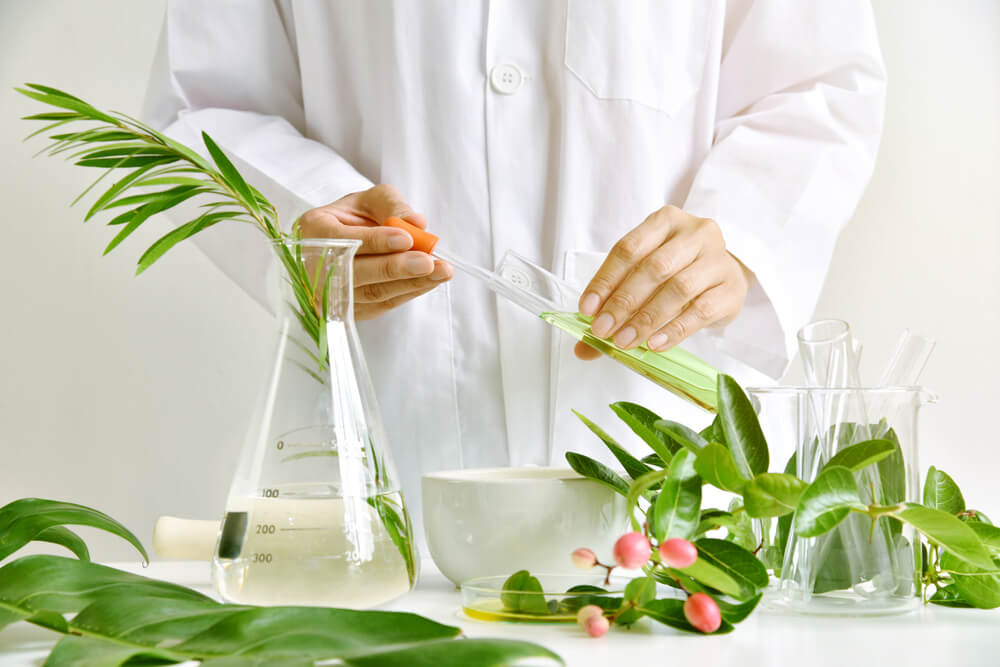The year 2023 has ended, and experts in the nutritional supplement industry have shifted their focus to global dietary supplement trends in 2024. According to the Nutrition Business Journal (NBJ), products aimed at relieving stress, mood, cognition, fatigue, anxiety, depression, and insomnia continue to be popular. Other trending categories include nootropics, inner beauty, and gut support products. The evolution of technology and social media platforms has transformed how consumers learn about and purchase supplements. Influencers on social media, with their dissemination of health-related information, have profoundly influenced the purchasing habits of their followers.
Herbal Extracts and Botanical Medicines: Making Room for Emerging Ingredients

NBJ forecasts that sales of herbal and botanical medicines will grow by nearly 6% in 2024. The reason for such significant growth? Herbal and botanical medicines account for 19% of total dietary supplement sales and cater well to buyers’ demands for specialized and targeted ingredients. These ingredients are becoming increasingly popular among consumers, with a compound annual growth rate (CAGR) of 5%.
Ashwagandha and elderberry extracts are among the recently popular supplement ingredients. What’s the next emerging ingredient? NBJ predicts that mushrooms will gain popularity next year, having tripled in growth since 2018. Interest in combining herbal products and higher-quality standardized ingredients is also rising. According to Natural Marketing Institute (NMI) data, 25% of the general population currently uses medicinal mushrooms. The primary reasons are energy enhancement, a healthy immune system, and overall wellness support, with secondary reasons related to mood and cognitive health.
Vitamins and Minerals: Opportunities for Innovation

Vitamins have always been an anchor category in dietary supplements. More than 58% of American adults take at least one vitamin supplement daily. Vitamins typically account for the largest share of sales in the supplement industry, especially during COVID-19. However, since 2022, NBJ has observed a sharp decline in vitamin sales. Industry experts believe that new and existing supplement brand owners should see this as a tremendous opportunity to develop and market innovative, quality-driven products. For instance, in the past, the vitamin market was characterized by a staple, standalone, and comprehensive multivitamin approach. As the market has evolved, it has become highly segmented, driving a move towards more focused and specialized solution approaches. The one-size-fits-all multivitamin strategy is no longer viable, and consumers are looking for a new generation of tailored vitamin combinations to meet their specific needs.
Magnesium is undoubtedly one of the fastest-growing minerals, as it is associated with mood enhancement and supporting a healthy immune system. It is also a versatile supplement that can be produced in various dosage forms, including gummies, chewable tablets, and mixed drinks. It can be packaged in stick packs, injectable packs, and traditional bottles and jars.
Sports Nutrition: The Hottest Supplements in the Industry

In 2022, sales of sports nutrition supplements grew by 9.7%, making it the fastest-growing category of the year. According to NBJ, the popularity of sports nutrition supplements is a “commentary on the mood of Americans.” Post-pandemic, Americans are eager to move again, with health and fitness becoming more popular. This growth has led to an expansion of new product forms and flavors within the category. Historically, collagen products have been a mainstay in women’s sports nutrition, but now, as their benefits extend to beauty from within, bone health, and weight management categories, they are gaining new life and increasing popularity. The growth in sports nutrition supplements is broad, with significant increases in sales of pills, powders, and functional beverages. The powder segment alone is a $7.29 billion industry. Progress is expected around claims of clean labels and consumer demand for more clinically verified efficacy “evidence.”
Hydration and replenishment are gaining attention across the entire category. Electrolytes offering hydrating flavors in forms like powders, effervescents, and liquids are thriving. Consumers are seeking the ideal balance of elements to maintain their electrolyte balance. Hydration is gaining consumer recognition and is expected to become more attractive in cross-category applications such as health management, inner beauty, and immunity. In the supplement market trends, meal replacement products have slightly declined, about 1.2%. NBJ suggests this may be due to the marketing behind sports nutrition supplements being more exciting than dietary replacements. Nonetheless, NBJ believes that, sports nutrition has become one of the hottest supplements in the industry.
Nootropics and Beauty Products: Growing Due to Next-Generation Innovations

Historically, multivitamins have been the go-to for supplementing health needs. However, two other exciting growth categories are nootropics and inner beauty. These categories also offer opportunities for new forms, increasing their appeal to different consumer demographics. Millennials and Generation Z prefer satisfying taste experiences and instantly enjoyable beverages and powders, while Baby Boomers and Generation X favor easy-to-use solid dosage forms.
Nootropics are supplements that have been shown to promote cognitive health. The first generation of supplements included caffeine and ginkgo biloba. However, emerging interest in this category has caught the attention of students, seniors, and fitness enthusiasts who are turning to next-generation products such as L-theanine taken alongside caffeine. This combination may induce a sense of calm and has been associated with increased creativity. Creatine, widely used in sports nutrition, offers the mental energy that many consumers seek without the side effects of nervousness and insomnia.

“Inner beauty” is on the rise across all age groups. Anti-aging functions are popular among younger consumers while improving fine lines, wrinkles, and hydration are popular with the Baby Boomer generation. The cosmetics and health supplement industries offer consumers an inside-out strategy to promote visibly perceptible results. Solutions come from the sports nutrition category, immunity, gut health, and nootropics. Inner beauty ingredients include resveratrol, MSM, and a range of collagen technologies, which claim to have clinical effects.
Gut Health Category: Expected to Continue Growing

Supplements that support gut health can alter and improve the gut microbiota, offering additional health benefits. These include the “biotic bundle”: prebiotics, probiotics, and postbiotics. Probiotics are live microorganisms (usually bacteria or yeast) that can benefit the gut microbiome and other areas. There are many strains of probiotics, each with its special abilities.
Prebiotics support the growth and proliferation of these gut bacteria within the gastrointestinal tract. While most people associate prebiotics with dietary fiber, more research indicates that many other nutrients, including flavonoids, have potent prebiotic activity.
Postbiotics are a newer addition to the nutrition industry. Although the exact definition of postbiotics is still debated, they typically include inanimate probiotics and their components and the metabolic byproducts they produce. Due to the potential for a wide range of benefits, consumer demand for synbiotics, which combine the beneficial effects of pro-, pre-, and postbiotics in one product, is growing.
As science continues to uncover how the microbiome affects many aspects of our health, this category is expected to expand in the coming years. Since probiotics are usually very sensitive to heat and humidity, expert formulation, manufacturing, and packaging choices are crucial for producing stable, successful products in this field.



